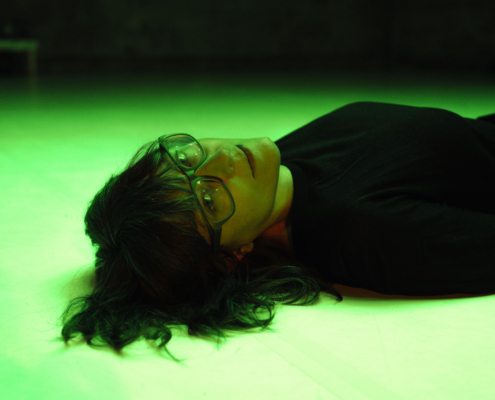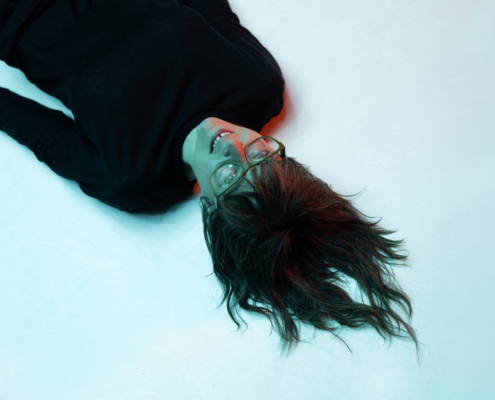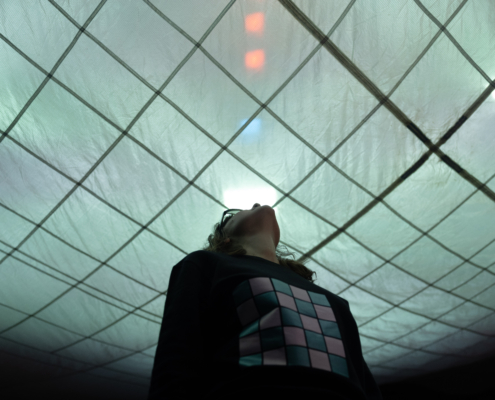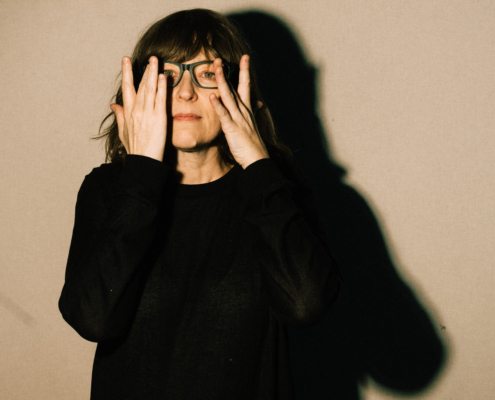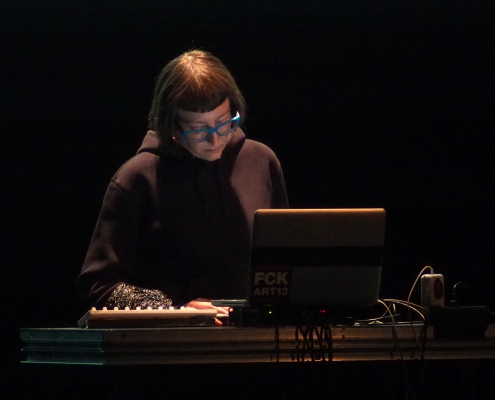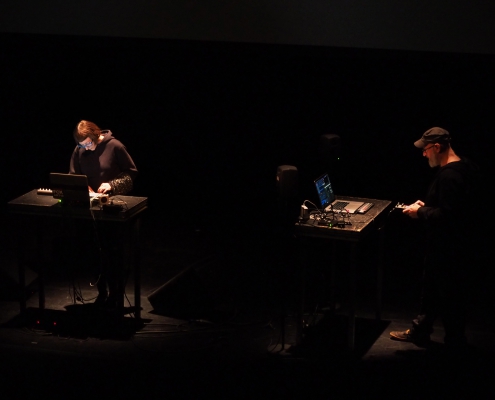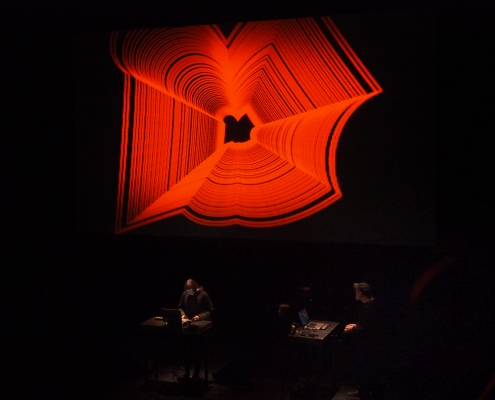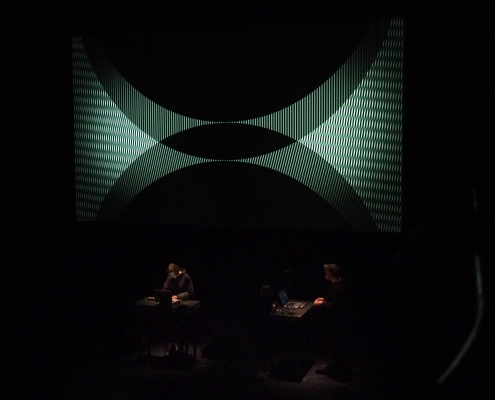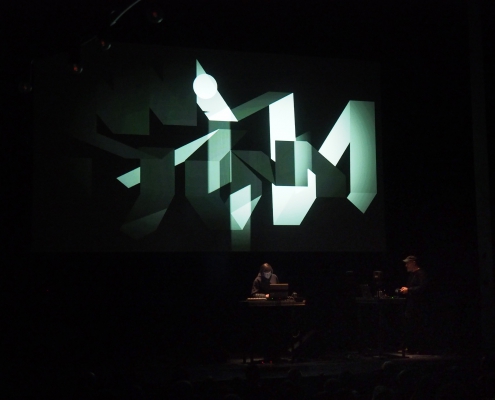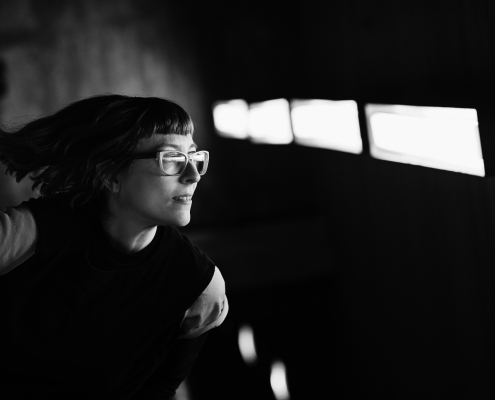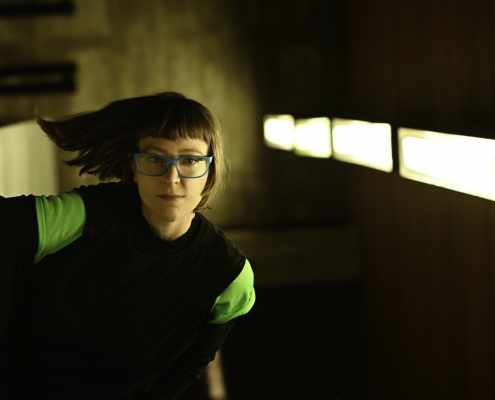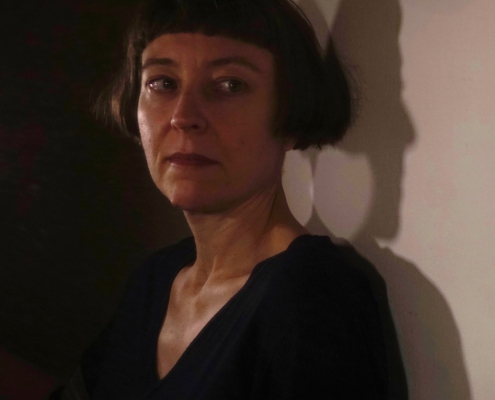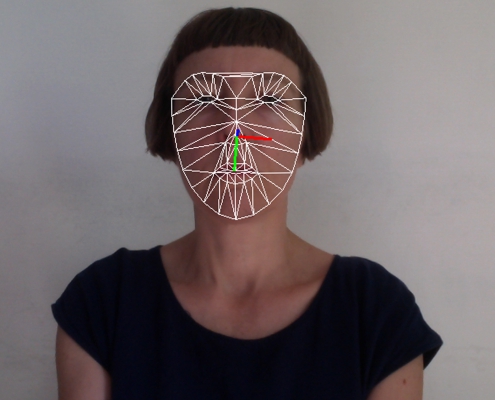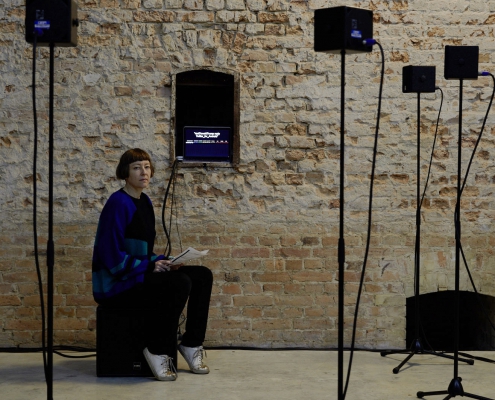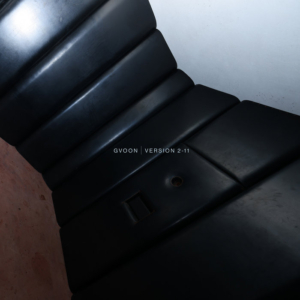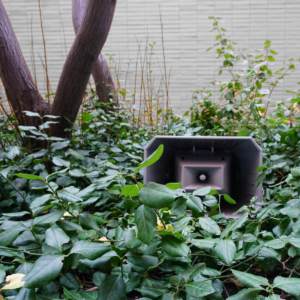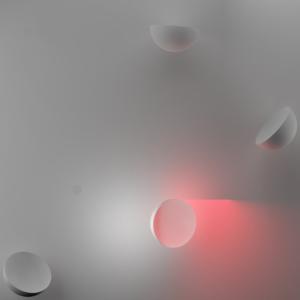JASMINE GUFFOND
LIVE – karlrecords, sonic pieces, editions mego (AUS, based in Berlin, DE)
Jasmine Guffond Techrider 2026
The Unsmart Duo TECHRIDER
Biography
Jasmine Guffond is an artist, composer and electronic musician investigating the intersection of sound, technology and political infrastructures through live performance, recording and installation. Over the last decade her sound art has interrogated surveillance cultures, using the sonification of data to reveal hidden digital processes such as facial recognition algorithms and internet tracking. These research based artistic projects provided sonic experiential platforms to encourage listening as a mode of socio-political investigation and explore what embodied sound and listening may contribute to the production of knowledge.
Her work has been presented internationally at galleries, art institutions and electronic music and art festivals including opening for CTM festival in 2020, a commissioned work for the Groupe de Recherches Musicales (GRM) Acousmonium, premiered in Paris at Présences Électronique in 2022, and an installation for Zentrum für Kunst und Medien (ZKM) in 2025.
Jasmine Guffond performs solo, as AV together with video artist Ilan Katin, and as The Unsmart Duo together with clarinetist Kai Fagaschinski. (All three live in Berlin.)
Jasmine has released solo records with the Sonic Pieces (2015, 2017), Karl Records (2018), Editions Mego (2020), OOH-Sounds (2024), and LINE (2025) labels that intuitively explore abstract sound as well as referencing traditional musical structures, aspiring to develop a musical language as much interested in sonic phenomena as the emotive power of music. In order to encourage a deep embodied listening, her live performances explore bass frequencies and the way sound is felt by our bodies as well as extreme dynamics, ranging from the barely audible to moments of intense volume. Interested in the interplay between human and machine agency in electronic music making, extra-musical concepts also influence her aesthetic process. Her 2024 album Alien Intelligence explored themes of machine autonomy through Max/MSP programming and a Serge modular synthesizer, a process that questioned an assumed central position of human subjectivity in socio-technical assemblages. Her 2025 album Muzak for the Encouragement of Unproductivity, is a poetic inversion of Muzak’s traditional role in stimulating seamless productivity in the workplace. Sonically addressing notions of efficient, maximum productivity, inherent to capitalist cultures, and their negative effects from labour exploitation to the impacts of over-production on the environment, Muzak for the Encouragement of Unproductivity aims to provide a reflective space in which to consider the benefits personally, globally and environmentally, of slowing down.
Jasmine was awarded the Berlin Senate Working Scholarship for New Music and Sound Art in 2016 and 2022, featured in Wire magazine in 2019 and in 2021 Dr. Jasmine Guffond completed her PhD at the University of New South Wales Art, Design & Architecture department, where she conducted research into sound as a method of investigation into online surveillance cultures.
Latest Releases
HOLGER CZUKAY / Mark Spybey, Jasmine Guffond & Robin Storey – Gvoon – Version 6 (There are Penguins)
released via MirrorWorldMusic
Muzak for the Encouragement of Unproductivity is a poetic inversion of muzak’s traditional role in stimulating seamless workplace productivity. Public Sound Installation.
The album has been released in June 2025 on L.A. based label LINE
Alien Alliance released on OOH-sounds in May 2024

